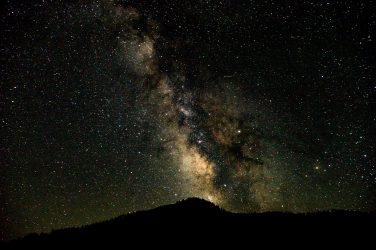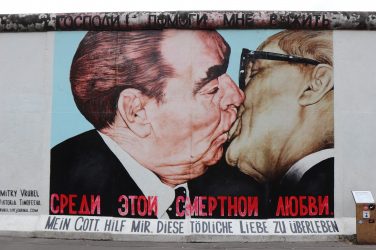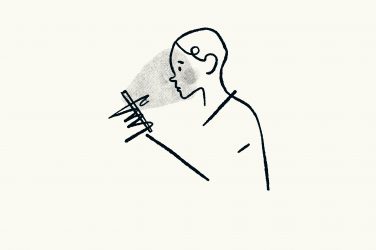The internet has forever changed how we gather, use, and understand information. However, the more knowledge we collect about ourselves and the world, the fewer people seem to have access to it – and the more powerful those become who do. Using the age-old myth of Doctor Faust, E&M‘s Allison Welty tires to makes sense of it all.
The German myth of Doctor Faust tells the story of a man who sells his soul to the devil in exchange for all knowledge in the world. The myth is often understood to reemerge in Western society at times of great moral and existential anxiety. One of the most famous versions of the story was written by British author Christopher Marlowe in the early stages of the Enlightenment and its calls to reconsider faith and objectively investigate our world. Common views understand Marlowe’s play as a warning about what man might sacrifice in the seemingly noble quest for enlightenment. But it seems no era is better equipped to understand this warning than our own.

We are now more literate, educated, and have far more information about our world than at any other point in human history. In many ways, the Internet and the excess of information at our fingertips fulfill the promise of liberal enlightenment and the idea that knowledge about our world and ourselves holds the key to a truly free and stable society. Democratic revolution came, in part, through increases in scientific verification, philosophical investigations into morality, and its aim to replace principles of faith with a doctrine of rationality. So why then, in our own era, defined by constant access to information and governed by the rationality big data is said to provide, are our democracies and societies seeming to crumble under the weight of this knowledge? Is it possible we sold our souls for cat videos and misinformation campaigns?
Is it possible we sold our souls for cat videos and misinformation campaigns?
In the early days of the Internet, many believed the availability of information it created and the global connections it fostered would spur even greater democratic revolution. The so-called “Arab Spring” and the wave of pro-democratic demonstrations throughout the Middle East were organised, in large part through Facebook and a number of smaller social media platforms. These demonstrations bolstered the public image of social media platforms, and it suddenly became difficult to imagine them as anything other than a benevolent force of good.
Several years later, the majority of the countries who overthrew their leaders in the name of democratic reform have regressed backward into military dictatorships. They are once more governed by the same kind of authoritarian structures they sought to overthrow. Recently, protesters in Egypt have been calling for President al-Sisi to step down, with hundreds detained for voicing their opinion. And of course, the current civil wars in Yemen and Syria can trace their origins, in part, to similar protest against their respective governments.
In reality, it seems as though the lasting legacy of these uprisings were ultimately the beginning of an even greater power struggle between nation states and the technologies that seemingly pose the greatest threat to their power. In the years since, the realities of Brexit, Donald Trump, and an international coalition of nationalist populism threatened only by its own irony, led many to begin questioning the Internet’s role as the final piece of the liberal enlightenment puzzle.
Freedom of (dis)information
In many ways, the Internet and the handful of powerful tech companies that comprise it have established a competing nation state of its own. These companies and the massive amounts of data and wealth they monopolise have proven they exist beyond the reach of any national or international justice system. They have their own currencies, administrative functions, and even the ability to wage war, all while inhabiting territory in nearly every country on earth. And in recent years, these companies have sought even greater control over our individual liberties.
We now know that Brexit and the election of Donald Trump relied heavily on illegally accessed public data that was used to prey on some of our greatest national anxieties. And recent regulation in the EU is pioneering a path toward containing the dangers of the Internet through regulation and oversight. The problem, however, is that the Internet is nothing more than a mirrored reflection of our own societies, and regulating the internet will not fix the ills of our own humanity. In reality, our gains in knowledge, like nearly everything in our economic systems, are wildly unequal.
Liberal enlightenment’s elevation of knowledge as the foundation for a new and free society was based on the naive belief that knowledge would be accessed freely and equally. Perhaps the key to understanding why more knowledge has not made us more free is understanding that knowledge can be bought and sold as a commodity. And in a system of vast economic inequality, accumulating more knowledge, as the old adage goes, truly means accumulating more power. While the vast majority of data is being fought over by the tech companies who collect it and the governments who seek to regulate it, academic researchers, NGO’s and civil society organisations have wildly disproportionate access to data compared to their private sector counterparts. This widening the gap between actors using the insights of big data to reshape our world could have disastrous consequences.
The price of knowledge
Ever increasing education costs and predatory student lending requires one to trade decades of their future life for a few years at university. These costs continually increase for students, in part, because a few companies have spent decades working to monetise the research emerging from these same universities. Academic publishing essentially relies on the free labour of academics to peer-review research, and then sells packages of this research back to the same universities at exorbitant cost. One of these companies, Elsevier, markets itself as both an ‘information analytics business’ and a publishing company, and they prioritise certain research fields over others.
As a result, gains in different types of knowledge are vastly unequal, with dangerous implications in our societies. The current wave of nationalism moving through the Western world, I argue, is a direct consequence of the devaluation of humanities education. The humanities, another by-product of the Enlightenment, sought to teach us what it means to be human, and more importantly, how we must recognise the humanity in others. Literature, History, Arts, teach us compassion, empathy, and much needed perspective about our world. However, the age of information has rejected these premises in favor of STEM and big tech, in the name of ‘innovation.’ As a result, we have almost dystopian amounts of technology aimed at streamlining warfare and reducing labour cost, rather than using this brain power to reduce suffering and improve the experience of being human.
Perhaps our era has the opportunity to rewrite the meaning of the Faust myth to reflect how the purpose of knowledge is more important than the gain
These disproportionate gains have likely prevented many from reading the warning contained in the Faust myth. For those who have, it is too easy to condemn Faust for his blind ambition without compassion for a want that is so deeply human we have all fallen victim. But perhaps our era has the opportunity to rewrite the meaning of the Faust myth to reflect how the purpose of knowledge is more important than the gain itself. And perhaps in the age of information, it should serve as a warning, not about the dangers of enlightenment, but instead about the various devils granting access to knowledge for their own gains. Perhaps the only knowledge we truly need to ensure a free society is the knowledge of which powers to truly fear.
Cover Photo: Markus Spiske (Unsplash), Unsplash Licence










